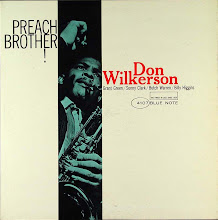Pain Medicine: Advocacy Group to Challenge Controlled Substances Act In Lawsuit Aimed at Protecting Physicians, Patients
Haysville, Kansas, physician Dr. Stephen Schneider and his nurse wife, Linda Schneider, were arrested on a 34-count federal indictment last month for allegedly improperly prescribing opioid pain medications. The Schneiders are only the latest pain management health care providers to fall victim to the federal government's war against prescription drug abuse and diversion, and now a leading pain relief advocacy group is vowing to take the government to court to block further harassment of physicians and the pain-ridden patients who rely on them.
Last Friday, the Pain Relief Network announced it will seek a civil injunction barring the Justice Department from prosecuting the Schneiders. But the lawsuit could have much broader implications than the couple's freedom. It will argue that the way the federal Controlled Substances Act is applied to doctors and patients is unconstitutional.
"I want a judge to take a look at this and see if the United States has authority to prosecute," Pain Relief Network head Siobhan Reynolds said during a press briefing last Friday. Reynolds cited a ruling in a similar case that such prosecutions give the government unrestrained power to interfere in the doctor-patient relationship.
The real victims of the government's crackdown on the Schneiders and other health care professionals prescribing opioid pain medications are patients, said Reynolds. "These patients are in real harm's way," Reynolds said. "They are being attacked by the Department of Justice."
While some of Dr. Schneider's former patients have filed malpractice lawsuits claiming they became addicted because of his prescribing, other patients said he had been a godsend and that they are suffering now without him.
One was Jamie McGuire, 49, who had been receiving pain meds for severe arthritis in his spine, hips, and shoulders resulting from an auto accident. Since Schneider was jailed, he has been unable to even get a referral to another doctor. "I think they railroaded him," he said of the prosecution. McGuire told reporters he is almost out of pain medication and his situation is dire. "If they don't do something, I will take myself out," McGuire said.
Another patient, Martin Beatty, 46, also showed up to support his doctor. He said he opted for a regime of pain meds rather than surgery or steroids after falling from a roof 12 years ago and had been a patient of Schneider's for three years. He admitted being dependent on his pain meds, but said that shouldn't matter. "Addiction doesn't mean I am going to be a bad person," Beatty said. Now he worries about going through withdrawal without being under a physician's care.
This week, patients and advocates continued to fight for Dr. Schneider, who, along with his wife, remains jailed. They gathered at his offices to show support and sign petitions, one to join the federal lawsuit, the other to keep the Kansas Board of Healing Arts from moving to suspend his license. According to Reynolds, the clinic will be forced to close because the physician assistants now writing prescriptions are doing so under the auspices of working for a clinic owned by a licensed physician. Other doctors who once practiced at the clinic have been run off by fears of federal prosecution, she said.
"Right now we are calling on the medical board to refrain from joining in this attack on this clinic. This clinic has been hobbled by the Justice Department. These patients are living in mortal fear," Reynolds said.
Hey Uncle Sam, leave my dr aloneComment posted by hippiemommaida on Fri, 01/11/2008 - 11:38am
I can see the distress the patients are going thru. I suffer extreme pain and prefer using marijuanna instead of using the vicodin. I have arthritis in hips, back knees, neck, wrist, hands and feet. With the use of marijuanna, I can get up and atleast attempt to accomplish something. And my attitude is better. I worry every day that the feds will arrest my 215 dr. Now at least I am safe from the local cops.
Controlled Substances ActComment posted by Anonymous on Fri, 01/11/2008 - 12:46pm
"some of Dr. Schneider's former patients have filed malpractice lawsuits claiming they became addicted because of his prescribing, other patients said he had been a godsend and that they are suffering now without him."
These so-called former patients who claim to have become addicted and are filing malpractice lawsuits are nothing but SCAM ARTISTS!!
Physical dependence on opioid's is a minor side effect that is easily overcome by gradually decreasing the dosage once the patient has recovered and the pain level has abated. Example: if a patient were taking 60 milligrams of oxycodone per day following surgery, and is now recovering, but has developed a physical dependence on the medicine, they can decrease the dosage to 30 milligrams for several days. Then 15 milligrams for a few days. Then 5 milligrams. Now that the patient is taking one percoset a day it's easily managed. Now go 48 hours. Then go seven days. They now have no physical dependence on the medicine.
I support the "Pain Relief Network" and believe they should win their legal battle.
Good luck to PRN, and thank you DRCnet.
addicted?Comment posted by mlang52 on Fri, 01/11/2008 - 6:32pm
You made a good analysis. The other thing might be that most want to punish the doctor for their inability to control their use of their own pain medicine. (the doctor can't go home with every patient, can he?) They think they deserve to get rich (like the doctor) because of it. Most are likely dishonest with their doctor, in the first place! They just see $$$$$! Greed is likely the biggest factor!
From the most part, opiods are the safest drugs for treating pain, both acute and chronic! 16-20,000 people die, each year, from the bleeding compllications alone, of NSAIDS! That has nothing to say about the heart attacks they say the same drugs like it, ( Vioox and others) have caused!
What next?Comment posted by Anonymous on Fri, 01/11/2008 - 12:58pm
It seems the crusaders looking to make names for themselves are willing to lay many lives on the chopping block for their glory in this witch-hunt society, propagated by the federal government bent on liberating us from our liberties. If you good poeple out there don't vote for Ron Paul, this will only be the beginning of a totalitiarian rule depriving us of our blood earned liberties and rights! This is not a joke! This is our last chance to honor the blood of our forefathers....or to spit on it with our fears and ignorance! TRUTH!
D.L. Matkins Sr.
Addictive cocaine good, non addictive marijuana bad.Comment posted by Anonymous on Fri, 01/11/2008 - 1:02pm
Why can't people be allowed to take whatever pain killer they want as long as nobody else gets hurt?
Will it ever stop?Comment posted by Anonymous on Fri, 01/11/2008 - 3:20pm
Maybe this lawsuit will help. It can't make things worse. This is a witch hunt and a usurping of the doctor-patient relationship. I don't know how much schooling a DEA agent has to have but I know they aren't qualified to take this doctor's garbage out. I can't believe the doctor and his wife are still in jail. Have we gotten to the point where a doctor can't get a recognizance bond? These agents are thugs.
Good in TheoryComment posted by Anonymous on Fri, 01/11/2008 - 3:39pm
The post above that suggests tapering as a way for pain patients to avoid acute withdrawal is technically accurate, but in my experience (as someone who has had multiple surgeries for chronic back pain caused by disk herniation), no doctor has ever offered that option. I was always afraid to ask because I thought such accurate knowledge would identify me as a "drug seeker".
However, if (god forbid) I have a re-occurrence of back problems, or another injury that justifies opioid pain relief, I will insist that the doctor agree to prescribe a tapering regime or I won't accept the initial script.
I guess we'll have to wait and see how that plays out.
BTW, I agree with the contention that those suing the doctor are greedy opportunists. But there are plenty of other people who do suffer through withdrawal after becoming dependent who do not take legal action.
What will happen to patients?Comment posted by Anonymous on Fri, 01/11/2008 - 4:58pm
The real risk here is that all of this doctor's patients will now be forced to find another physician to help them. Good luck with that!!! Most doctors now seem to think that everyone is an addict, or a potential addict. Which is the lesser of the two evils? I choose to take my medication (after three shoulder surgeries that left me disabled) rather than not be able to function at all. If someone has a chronic condition who should care if they are dependant on narcotic medication? I would much rather be "dependant" than to be in excruciating pain all the time. Good luck to this doctor and his wife. We need more docs such as him in the world.
health care in AmericaComment posted by Anonymous on Sat, 01/12/2008 - 12:24pm
If you don't think your doctor has been intimidated by the DEA, think again. Your doctor's prescriptions should be made on the basis of your health and comfort. But they're not. Even more important, at least for the doctor, is whether the prescriptions conform to a pattern that the DEA finds interesting. No doctor wants to write a prescription that the DEA will find interesting, even if it's the best thing for the patient. It's no fun to be in jail.Typically, doctors don't like being in jail. When a doctor weighs the benefit of your pain relief against the cost of his becoming an object of interest to the DEA, you can expect that your pain will have less weight, and that you will suffer unnecessary pain.
Health care in America: it's about many things, and your health and comfort *may* be one of them. Mostly, though, it's about money and power. It's appalling what America has become. It's time to change course.
bupronorphin?Comment posted by Anonymous on Sat, 01/12/2008 - 7:54pm
Bupronorphin (I'm not sure if that's the correct spelling?) has been found to be very effective in helping people get off opioids. There's a big difference between addiction and dependance. A diabetic, for example, cannot become addicted to insulin.
Subscribe to:
Post Comments (Atom)



No comments:
Post a Comment